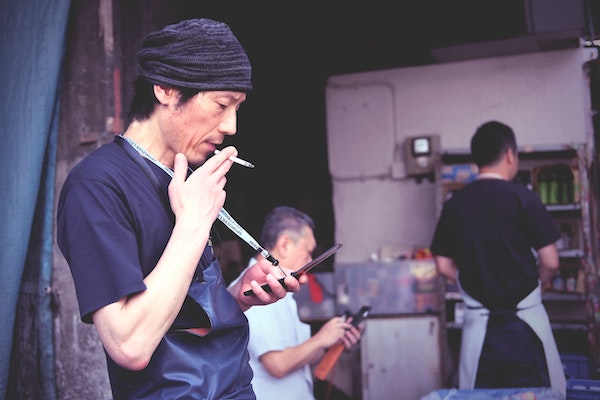
Photo by Erica Leong on Unsplash
Government health ministries in low- and middle-income countries (LMICs) have historically struggled to adequately fund healthcare services for their citizens. But as these countries transition away from donor funding over the next two decades, many will need to find new domestic revenue streams to finance these services. A new WDI white paper explores the impact of raising additional government revenue through increased tax rates on “bads,” such as tobacco, alcohol and sugary drinks.
The paper, “Revenue Estimates from Taxing ‘Bads’ in 16 Low- and Middle-Income Countries,” estimates the additional revenue generated in 2016 had higher excise tax rates been imposed on tobacco, alcohol and sugary drinks and then compares this revenue to select national economic indicators. The analysis included 16 low- and middle-income countries: Côte d’Ivoire, Democratic Republic of the Congo, Ethiopia, Haiti, India, Lao People’s Democratic Republic, Moldova, Myanmar, Niger, Papua New Guinea, Rwanda, Senegal, Sierra Leone, Tajikistan, Tanzania and Togo.
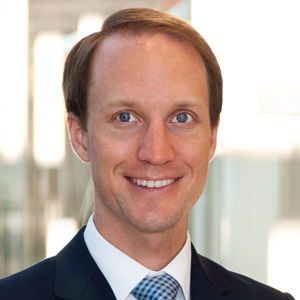
Ben Davis
“The key finding is that increased excise tax rates that result in only a modest increase in retail price can still generate an important amount of additional revenue relative to current health expenditure,” said Ben Davis, a research manager with WDI’s Healthcare sector. Davis wrote the paper with Pascale Leroueil, vice president of WDI’s Healthcare sector, and William Savedoff, senior fellow at the Center for Global Development.
The simulations showed that in 14 of the 16 countries, a tax increasing retail price by 17% could generate additional revenue that is more than 50% of the amount these governments currently spend from their own budgets on healthcare. For 7 of the 16 countries, additional revenue is more than 100% of that amount.
Davis emphasized that the study has limitations. For example, estimates do not account for income and cross-substitution effects (or when consumers switch to cheaper alternatives when a product’s price rises), and they are not adjusted based on historical experience in raising tax revenues.
While the results of the current study are broadly aligned with those recently produced by the Bloomberg Philanthropies’ Task Force on Fiscal Policy for Health, there is a slight difference in methodology. The method used by Davis and his fellow authors allowed them to incorporate several different data sources and calculation methods in the final revenue estimates. Input data were obtained from public databases, journal articles, and LMIC government websites and then used in either a “bottom up” or a “top down” calculation. The “Bottom up” calculation begins with data showing how often individuals consume tobacco, alcohol and sugary drinks while the “top down” calculation begins with the amount of money actually collected by LMIC governments that taxed these products.
Davis said these estimates could act as a starting point for a discussion between global donor organizations and country governments. “A government stakeholder might say, ‘These results are interesting. An increased excise tax on these products might be worth considering. Let’s do a deeper analysis to make sure these numbers reflect reality when we take into account all of the factors that couldn’t be captured in the initial study.’”
“This paper is a small part of a larger conversation about domestic revenue mobilization and healthcare financing in low- and middle-income countries,” Davis said. “It is a building block.”
This white paper is a modest contribution to the existing body of knowledge on potential revenue benefits from taxation of “bads” in low- and middle-income countries (LMICs). We seek to provide orders-of-magnitude responses to the questions, “For 16 LMICs, what amount of additional government revenue could have been generated in 2016 if higher excise tax rates had been imposed on tobacco, alcohol, and sugar-sweetened beverages?”, and “How does this additional government revenue compare to select national economic indicators?”.
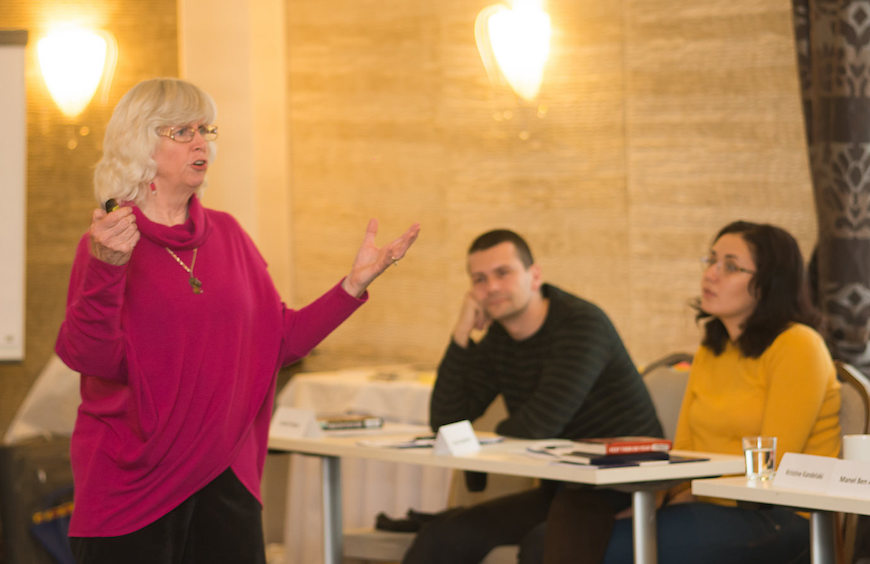
Professor Linda Gasser, WDI faculty affiliate and a founder of the Central Europe Human Resource Education Initiative, who led the NGO management session.
Non-governmental organizations (NGOs) around the world are facing increased scrutiny and even intimidation by government ministries and regulators in several emerging democracies. Equipping them with the managerial skills and tools they need to advance positive social and political change is critical to their missions, and was the focus of a four-day workshop in Bratislava, Slovakia earlier this month.
WDI, along with the Weiser Center for Europe and Eurasia at the University of Michigan and the Slovakia-based Pontis Foundation, organized the NGO Leadership Workshop. Twenty-five NGO leaders from 14 countries, including Uzbekistan, Kazakhstan, Ukraine, Moldova, and Georgia, participated in several highly interactive sessions during the workshop.
This was the second year WDI partnered with the Weiser Center, which sponsored the event, and the Pontis Foundation to coordinate the NGO Leadership Workshop. It comes at an especially challenging time for many NGOs. As communist regimes fell in Central and Eastern Europe, South Eastern Europe, and the former Soviet Union, civil society organizations emerged to help support the fledgling democracies in these regions. However, distrust in NGOs has generated new problems for their managers.
“NGOs from across this region are in a particularly difficult position these days,” said Amy Gillett, vice president of WDI’s Education Initiative. “Some of the countries stigmatize them as ‘foreign agents’ — meaning they are an enemy of the state and, therefore, under surveillance. This creates an atmosphere where people in the society do not want to associate with them.”
The NGO Leadership Workshop, held Dec. 6-9, attempted to maximize the effectiveness of the organizations by giving their leaders the necessary skills to properly interact with international partners, government stakeholders and the public. The daily workshop topics were: planning and sustainability of NGOs; essentials of NGO management; marketing strategy for the NGO; and, advocacy and public policy building.
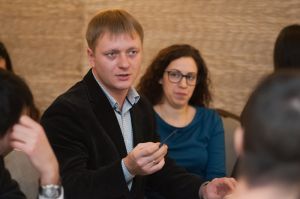 “The changes in the government of these countries cause tremendous stress,” said Professor Linda Gasser, WDI faculty affiliate and a founder of the Central Europe Human Resource Education Initiative, who led the NGO management session. “People need to find ways to mitigate this. The great value in this program is that participants are networking and understanding that there are others experiencing similar things.”
“The changes in the government of these countries cause tremendous stress,” said Professor Linda Gasser, WDI faculty affiliate and a founder of the Central Europe Human Resource Education Initiative, who led the NGO management session. “People need to find ways to mitigate this. The great value in this program is that participants are networking and understanding that there are others experiencing similar things.”
Many workshop participants cited the interaction with faculty members, guest speakers and each other as a key benefit of the program. They plan to remain in contact in the months to come and also will receive additional training through WDI’s interactive ExtendEd portal. This portal, designed and implemented by WDI, guides participants’ learning before, during and after a program, and encourages them to apply this knowledge back at their job.
Another workshop highlight was a presentation on the development of civil society in Slovakia by Martin Butora, who served as that country’s ambassador to the U.S. from 1999-2003. He also was one of the founders of the political movement Public Against Violence, which opposed communist rule in Slovakia.
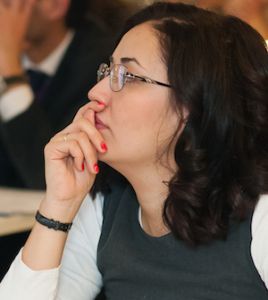 The presentation was followed by an engaging question-and-answer session with Ron Weiser, former U.S. ambassador to the Slovakia. In 2004, Weiser received the White Double Cross —the highest award given to non-Slovaks — from Slovak President Rudolph Schuster for his work as ambassador.
The presentation was followed by an engaging question-and-answer session with Ron Weiser, former U.S. ambassador to the Slovakia. In 2004, Weiser received the White Double Cross —the highest award given to non-Slovaks — from Slovak President Rudolph Schuster for his work as ambassador.
“Regardless of the countries we come from, we are all experiencing the same problems,” said Nadiia Bureiko, vice head of the Ukraine NGO, Quadrivium. “This program has created a valuable network for future cooperation.”
Stefan Veljkovic, program director of the Kosovo NGO, YEC Synergy, praised the workshop faculty and speakers. He said he learned how to build organizational capacity, recruit people to join a cause and that there are “many ways to get across a message.”
Lenka Surotchak, executive director of the Pontis Foundation, said it might be difficult for someone living in an established democracy to understand the day-to-day fear, struggles and sacrifices of “people fighting for rule of law and attempting to undertake democracy.”
“They do it because they believe in freedom and a better future in their country,” she said. “Interaction with the faculty from one of the renowned U.S. universities, the University of Michigan, the knowledge and belief in their skills, mission and work give them the power and optimism to continue their important job.”